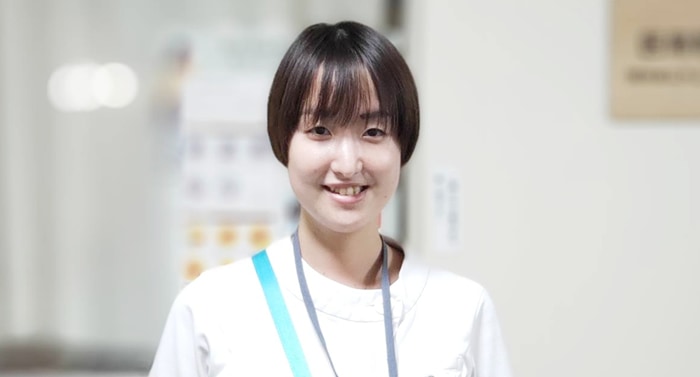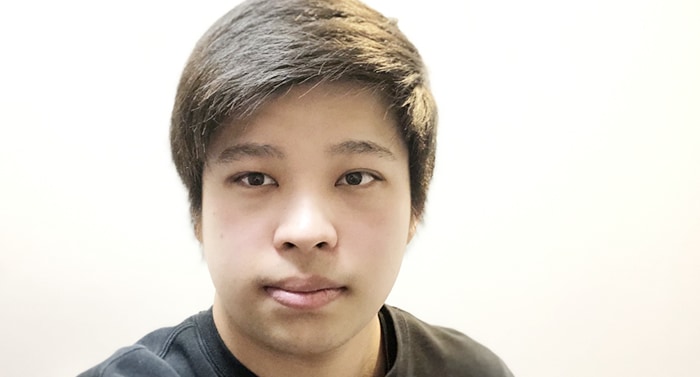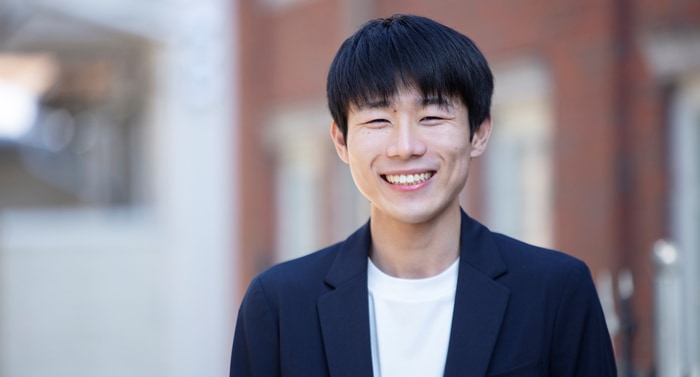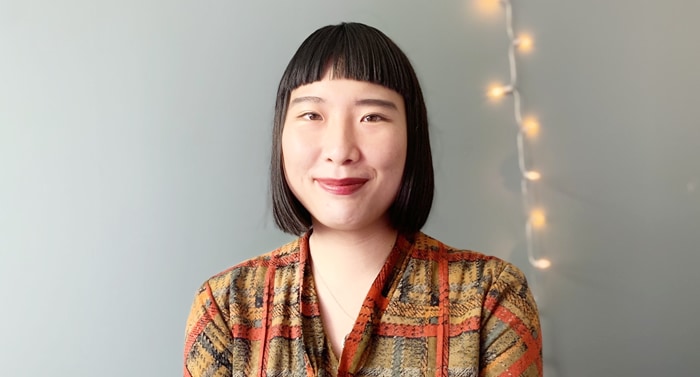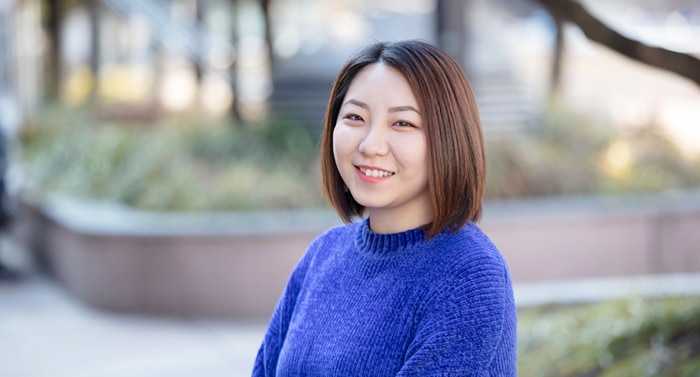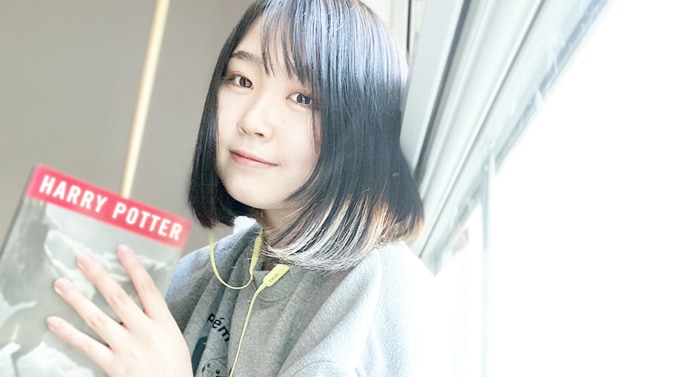子ども達のレジリエンス
CHILDREN’S RESILIENCE
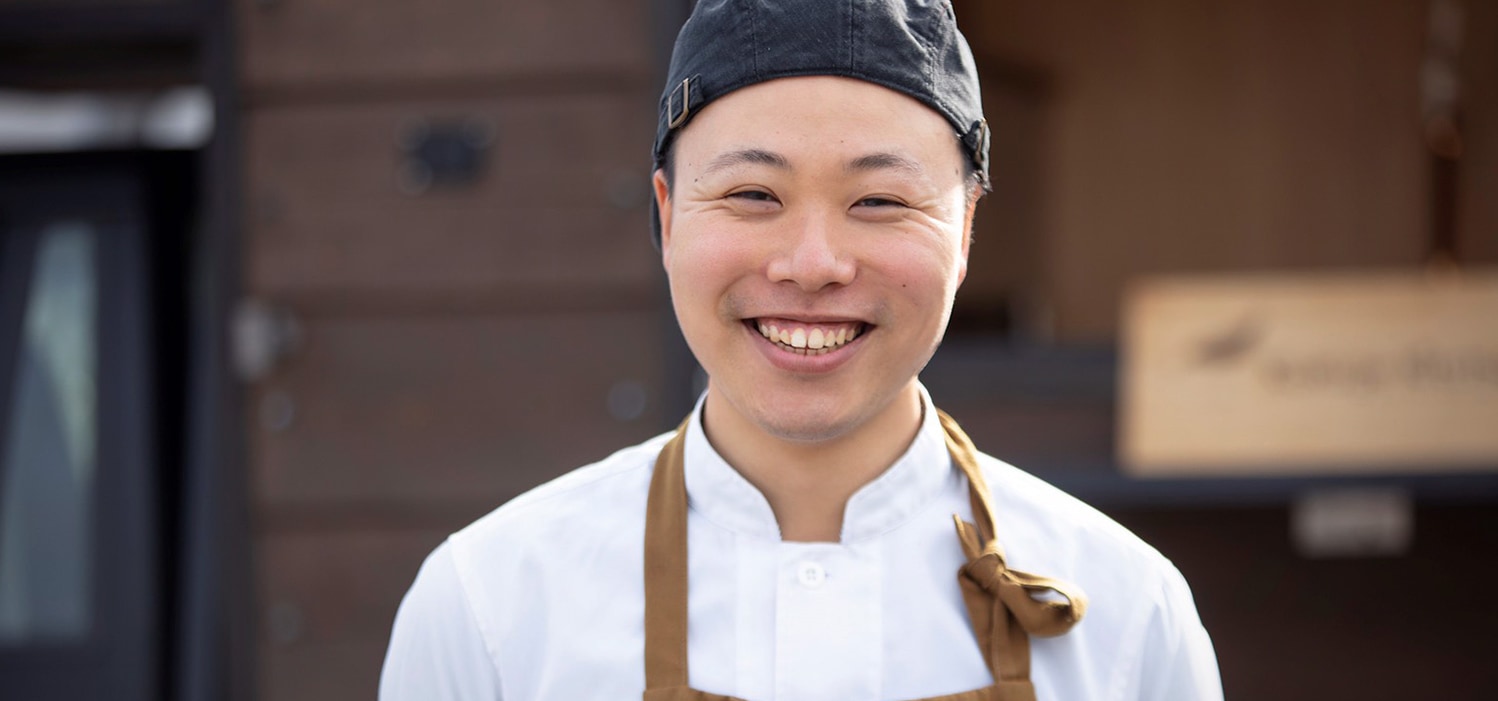
復興を志す09
「夢を追って福島の田舎へ行く」
若者が挑戦できる地域づくりを目指して!
Aiming to create a community where young people can realize their dreams in the countryside of Fukushima.
大島 草太 | 栃木県宇都宮市
Sota Oshima (Utsunomiya, Tochigi)

また、ここに帰って来ます。今度は、お客さんではない立場で!
私は昨年、大学卒業と同時に事業を興し、福島の活性化のために働いています。
阿武隈地域を拠点にして、大学4年生の時にクラウドファンディングを通し、多くの方々のご支援のおかげで購入したキッチンカーに、地域の食と人の魅力を詰め込み、各地を走っています。
まずは、自分から直接会いに行き、阿武隈地域の魅力を知ってもらうきっかけを作る。
そして、地域を知ってくれた方々が気軽に遊びに来れて、地元の人と交流できる場「マルシェ」を地域住民の方々と一緒に作り上げていく。
福島に興味を持つきっかけを作り、ゆくゆくは、ここで若者が挑戦できる文化を築いていく。そんなことを福島の田舎から始められたら面白いと思い、「Kokage Kitchen」という旅するワッフル屋の事業を始めました。
◎Crowd Funding
福島県川内村の魅力をのせて旅するワッフル屋さん、キッチンカーをつくるの巻!
https://camp-fire.jp/projects/view/211180
◎Twitter「Kokage Kitchen」
https://twitter.com/KokageKitchen
そもそも私が、この事業を始めるきっかけは、2013年の夏に遡ります。
当時、高校1年生だった私は、Support Our Kidsのカナダ研修に参加しました。
カナダの経験で、一番心に残っていることは、ホームステイ先のご家族が、私に対して、我が子のように愛情を注ぎ、可愛がってくださったことです。家族のことや将来のことなど、たくさん話をしました。
現地プログラムの最終日、私はホストファミリーをはじめ、現地支援者の皆様の前で、
「また、ここに帰って来ます。今度は、お客さんではない立場で!」
と宣言しました。
落ち込んでいるなんて、とんでもない
高校を卒業した私は、教育学を学ぶために、福島大学へ進学しました。
そして、せっかく福島へ来たからには、「もっと被災地のことを知ろう」と思い、「むらの大学」という自由選択のフィールドワーク授業で、川内村を訪れました。
よそから来た人に対して、村民はつめたいかもしれない。
高齢化が進んでいて、若者がいないのでは。
農業工業以外のビジネスはほとんどなく、被災地ということで村は落ち込んでいるのではないだろうか。
最初は、そんなネガティブなイメージを持っていました。
しかし、実際に村へ足を運ぶうちに、そのイメージは見事に覆されました。
村に向かう道を車で走っていると、周りにはどんどん緑が増えていきます。
雄大な森林、美しい水が流れる川や滝、その恩恵を受けて育つ農作物の、おいしいこと。
よそから来た自分を笑顔で受け入れてくれる村の人たち。
そして、そんな村のあたたかさに魅せられて移住してきた若者も多く、村にとけこみ、村を盛り上げていました。
川内村は、仕事も遊びも自分が面白いと思うことを、自分たちの手で、全力で楽しんでやっている人の活気にあふれています。
そして、課題が多く、競争相手が少ない分、様々なビジネスチャンスがあることも、若者を惹きつけている理由のひとつでした。
落ち込んでいるなんて、とんでもない。
そんなことを考えていた自分が恥ずかしくなるほど、村の人たちは前を向いて生きていたのです。目の前にあるそれぞれの人生を楽しみ、目的を持って生きていたのです。
キャリアは会社に委ねるのではなく自分で築くもの
大学3年になると、私は、あの宣言の通り、再びカナダを訪問しました。
お客さんとしてではなく、ワーキングホリデーで1年間実際に働いて、肌で世界を感じるために。
そして、この2度目のカナダ訪問で、私は、福島のことを真剣に考えさせられることになったのです。
そのきっかけとなったのは、カナダでの福島のイメージの悪さを思い知らされたショックです。
海外のニュースによる原発事故の拡張されたイメージよって、彼らにとって Fukushimaは負の遺産の象徴であり、「あんなところは、人の住む所じゃない」と言われたこともありました。
大好きなはずの福島から来たことを隠すようなアイデンティティの葛藤の中で、苦しい思いをしたのです。そして、このイメージを変えるために、何かできることはないかと考えるようになりました。
カナダでの生活は、私の価値観、人生を大きく変えました。
最も変わったのは、キャリアに対する価値観です。日本で小中高大と進むうちに、有名企業など、人から羨まれる仕事につくのがいいキャリア形成だと刷り込まれてきましたが、キャリアは会社に委ねるのではなく自分で築くものと思えるようになり、起業も含め、仕事選びの幅が大きく広がりました。
そう思えるようになったのも、カナダで働いていた会社で、上司も部下も役職ではなく名前で呼び合い意見も言い合っていたフラットさや、夢を追って自由に仕事をしている若者に出会ったからだと思います。
仕事選びの際に、自分にとって何が大切で、何が喜びかを突き詰める。
私にとって、それは「挑戦」でした。自分の力で常に何かに挑戦するために「起業」を選ぶといった、そんな挑戦できるキャリアを大学卒業と同時に選ぶことができたのも、カナダで価値観の変化があったからだと思います。
帰国した私は、バイクで日本中を回り、改めて田舎の良さを感じるようになります。
そして、その中でも特に惚れ込んだ川内村へ、再び通うようになりました。
村を知るほどに、今後も継続して川内村に関わっていきたいという気持ちが大きくなっていきました。
そのためには、活動に継続性を持たせるために、ビジネスとして成り立たせることが必要だと考え、少ない資金から始められるイベント出店販売に目をつけました。
以前、フィールドワークで行っていた「川内ピザ」からアイデアを得て、「川内村そば粉ワッフル」事業の構想を2018年11月からスタートしたのです。
こうして誕生したのが、現在の「Kokage Kitchen」です。
活動開始から2年が経ち、味については、何度も改良を重ねたため、ありがたいことに好評をいただけることが増えてきています。しかし、その背景や地域の方々の想いを知ってもらい共感してもらうことについては、まだまだ努力が足りていないと感じています。
キッチンカーというPRツールには、地域の魅力を伝える伸びしろが、まだまだあると思うので、今後も工夫をし続けていきます。
震災前の現状復帰ではなく、よりよくなることが本当の復興
震災から10年。
震災当時、中学生だった自分が、海外経験を活かしながら、好きになった福島の復興、町おこしの最前線で活動できていることを心から誇りに思います。
課題のすぐ後ろには可能性があるため、辛いこと、大変なことがあるからこそ、イノベーションは生まれると思っています。
人類の歴史を見ていると、大きな成果の裏には逆境があったことも多く、逆境があるからこそ我々は進歩してきました。
私が今の福島に興味を持ったのも、そこに大きな可能性を感じているからです。
震災後、地元を愛し地域に住み続けている人々、地元を離れたが地元に想いを寄せている人々、そして新たに移住してきた人々。
震災から10年後の福島は、そんな人々の溢れんばかりのエネルギーによって、活気づいていて、震災前よりむしろ素敵な場所になる可能性を秘めています。
震災前の現状復帰ではなく、よりよくなる。
このことを今や未来の住民が感じられることが、本当の意味での復興ではないかと私は思います。
そこに近づけるため、「若者が挑戦できる地域」づくりをしていくことが私の当面の目標です。
今から10年後、100年後の未来には、「夢を追って上京する」ように、
「夢を追って福島の田舎へ行く」。
若者の中でそんな流れができると、この地域はもっともっとクリエイティブで面白い地域になると思います。
その先駆けとなれるよう、まずは自分がこの地域でモデルケースとなり、そして地域に興味のある若者をサポートしていきます。

I’ll come back here next time, but not as a guest!
Last year, upon graduating from university, I started my own business and have been working to revitalize Fukushima.
With the support of many people through crowdfunding, I was able to purchase a food truck when I was a senior college student. Based in Abukuma, I drive around, packed with local food and people's charm.
The first thing I want to do is to meet people directly and create an opportunity for them to learn about the charm of the Abukuma area.
Then, in cooperation with the local residents, I will create a "marche" where people can casually visit, learn about the area, and interact with the locals.
I will create opportunities for people to be interested in Fukushima, and eventually build a culture where young people undertake challenges. I thought it would be interesting to start such a thing in Fukushima’s countryside. So, I started with a travelling waffle shop business called "Kokage Kitchen".
Crowd Funding
Creating a travelling waffle shop and food truck fused with the charm of Kawauchi village in Fukushima prefecture.
https://camp-fire.jp/projects/view/211180
◎Twitter "Kokage Kitchen
https://twitter.com/KokageKitchen
The reason why I started this business goes back to the summer of 2013.
I was a high school freshman at that time, and I participated in the homestay program in Canada offered by Support Our Kids.
The most memorable part of my experience was that my host family loved and cared for me like their own child. We talked a lot about our families and our future plans.
On the last day of my homestay, I declared in front of my host family and all the local supporters, "I will come back here again next time, but not as a guest.”
No reason to be downhearted.
After graduating from high school, I went to Fukushima University to study education. And since I’m already there, I decided to learn more about the disaster area. I visited Kawauchi village as part of our optional fieldwork class called "Village University”.
I wondered if the locals are a little indifferent to people from other places.
The population is aging and there are hardly any young people.
There are no other businesses aside from agriculture related establishments.
The village might be a melancholy one because it’s a disaster stricken area.
At first, I had a negative outlook of the area.
But when I actually visited it, the image I had thought was completely overturned.
As I drove along the road to the village, I saw more greenery around.
Thanks to its magnificent forests, rivers and waterfalls with beautiful water flowing through them, and the delicious crops that grow there.
The people of the village welcomed me with smiles.
Many young people were attracted by the warmth of the village and moved there, blending in and making the village livelier.
Kawauchi village is filled with the energy of people who are doing what they think is interesting, whether it is work or play, with their own efforts, and enjoying themselves to the fullest.
Another reason why the village attracts young people is that there are many challenges and few competitors, so there are lots of business opportunities.
There’s no reason to be downhearted.
The locals are so forward looking that I felt ashamed of myself for thinking otherwise. They are living with a purpose, enjoying life in front of them.
Build your own career and don’t rely on companies.
I visited Canada again when I was a third year university student, just as I had declared.
Not as a tourist, but to actually work for a year and feel the world first-hand during my working holiday.
It was during this second visit to Canada that I was forced to think seriously about Fukushima.
What triggered this was the shock I got after learning that Fukushima has a poor image in Canada.
I was told that Fukushima is a symbol of a negative legacy and that it’s not livable, due to the exaggerated image of the nuclear accident in the international news.
People suffered from identity crisis that made them hide the fact that they came from Fukushima, a place they were supposed to love. I then began to think about what I could do to change this image.
Living in Canada has changed my perspective and my life.
What has changed the most is how I look at work. As I went through elementary, junior high, high school, and university in Japan, I was imprinted with the idea that it was a good career to work in a famous company or a job that would be envied by others. But I have come to believe that a career is something that you build yourself, not something being relied to a company.
I was able to think that way because of the frankness of the company I worked for in Canada, where both bosses and subordinates called each other by their names instead of titles, and openly discussed their opinions to each other. I also met young people who were working freely and pursuing their dreams.
When choosing a job, you have to find out what is important and what brings you joy. For me, it was a challenge. I think the reason why I was able to choose a challenging career like entrepreneurship was because I had a change in values in Canada.
When I returned to Japan, I travelled around by my motorcycle and began to feel the goodness of the countryside anew. And then I started visiting Kawachimura because I fell in love the most with the place.The more I got to know Kawauchi, the more I wanted to continue to be involved with the village in the future.
For me, it is necessary to make the activities as business to make it sustainable, so I turned my attention in selling the products at events, since it can be implemented with little capital only.
I got the idea from "Kawauchi Pizza" when I had my fieldwork there before. So, I started the "Kawauchi Soba Flour Waffle" business concept in November 2018.
That’s how the current "Kokage Kitchen" was born.
Two years have passed since the start of the project, and the taste of the waffle has been improved many times. Thankfully, I am receiving more positive feedback. However, I still feel that I have not done enough yet to let the public know about the history of the food.
I believe that there is still a lot of room for the food track as a PR tool to convey the appeal of the region, so I will continue creating ways to do so.
Real recovery is not returning back to the status quo before the earthquake, but to become better.
Ten years have passed since the disaster.
I was a junior high school student at the time of the disaster, and I am truly proud that I am now able to use my overseas experience to work on the frontlines of the recovery and revitalization of Fukushima, a city I have grown to love.
I believe that innovation is born out of hard and difficult times, because there is potential right behind every challenge.
Looking at the history of mankind, there have often been difficulties behind great achievements. It is because of adversities that we have progressed.
I am interested in Fukushima because I see a great potential in it.
After the disaster, there are people who still love their hometowns and remained, there are those who left but still have sentiments, and there are others who simply moved to new areas.
Ten years after the disaster, Fukushima is overflowing with vibrant energy of these people and has the potential to become a more wonderful place than it was before.
Fukushima will not return to its previous state before the disaster, it will become better.
I believe that the true meaning of recovery is for the present and the future generations to be able to understand this.
My immediate goal is to create a community where young people can take on challenges.
10 to 100 years from now, people will go to the countryside of Fukushima to pursue their dreams.
If such a trend can be established among young people, I believe that this region will become even more creative and interesting.
I would like to be a pioneer model case in this region and support young people who are interested.
RESILIENCE
復興を志す
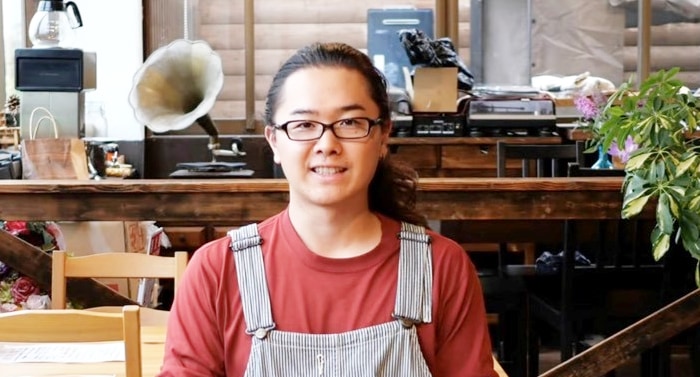
復興を志す 01
自分が次の世代に、この美味しさを残す。ファーマーそして農チューバーという挑戦。
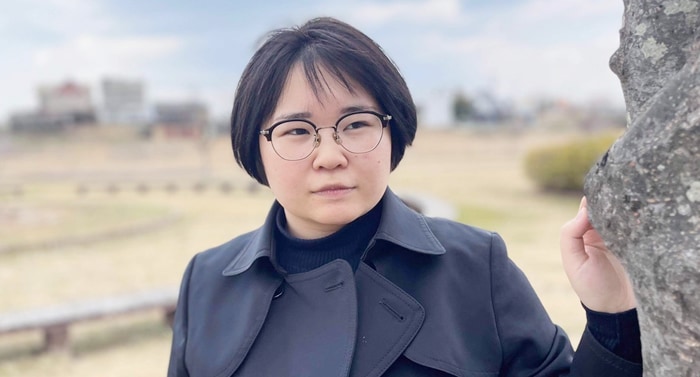
復興を志す 02
海外で得た「福島プライド」を、未来を担う子どもたちに伝えたい、育てたい。
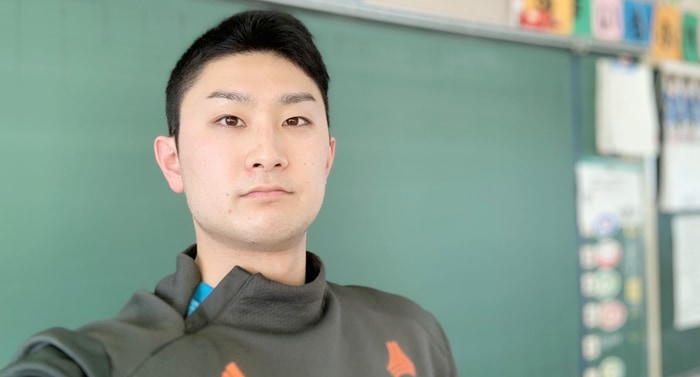
復興を志す 03
教える立場になった今、一番大切にしていること。「心を理解しようとすること」
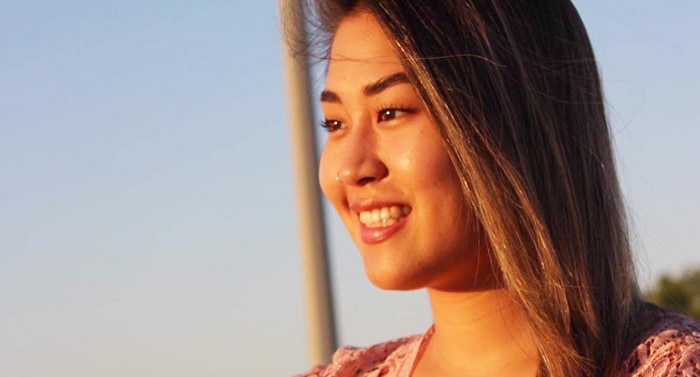
復興を志す 04
ドバイから、世界に通用する福島出身の日本人になりたい。
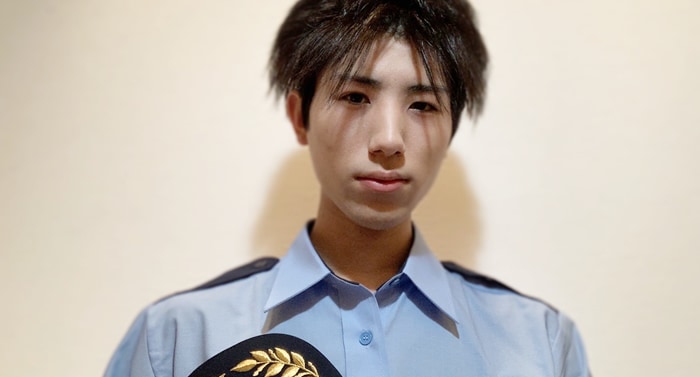
復興を志す 05
命が助かったからには、少しでも復興に役立つ大人になりたい
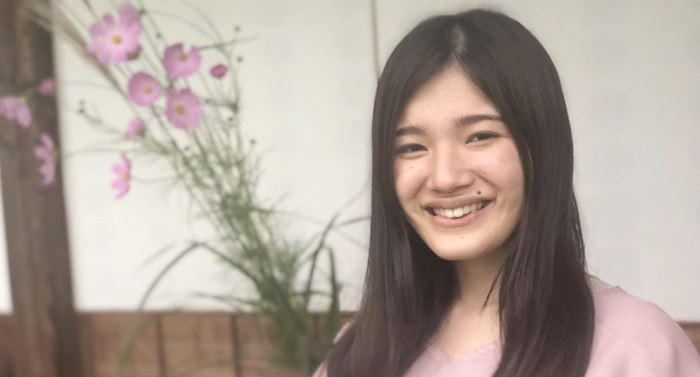
復興を志す 06
大人になった私が、今度は、地元・栗原の子ども達を応援したい
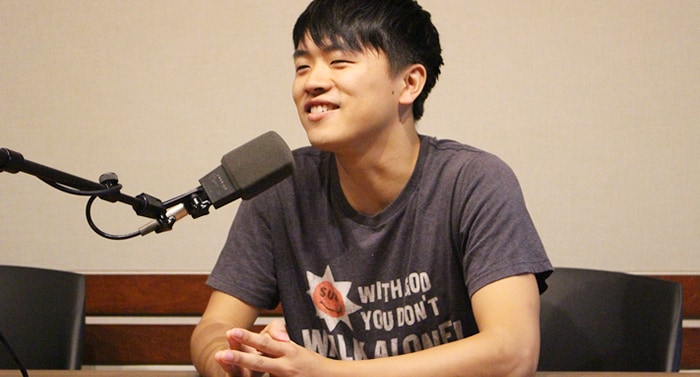
復興を志す 07
『恩送り』という、恩返しのカタチ。
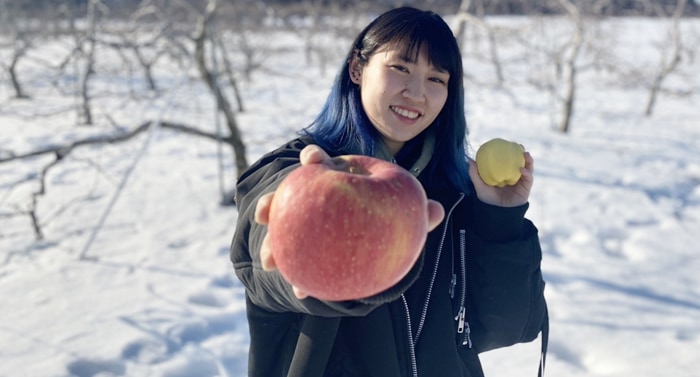
復興を志す 08
震災後の「あたりまえ」は、復興の軌跡
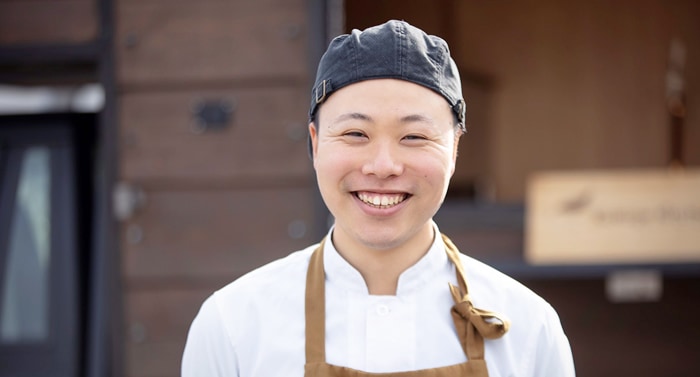
復興を志す 09
